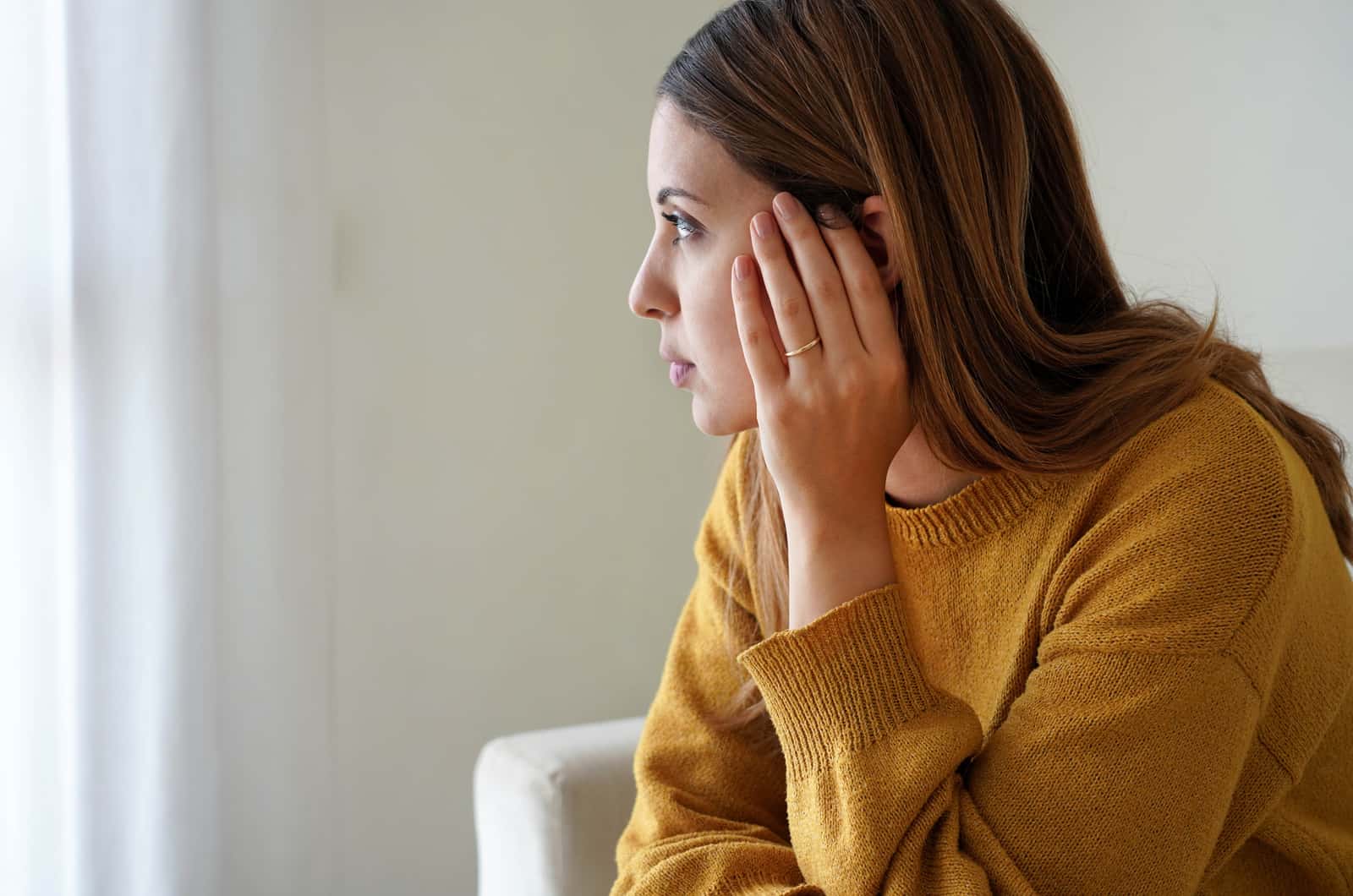Why Don’t People Like Me? The Reasons And The Solutions
Think of the kindest, friendliest, most interesting person you know, and you can be sure that there’s still someone out there who hates them. Whenever you ask yourself, “Why don’t people like me?” remember that there’s no one out there who doesn’t have their own share of disapproval.
Feeling that you’re disliked more than other people can be just that – a feeling – and the reality is that people like you and dislike you as much as anyone else.
Those who don’t like you might feel that way for reasons that don’t involve you. There’s nothing you can do about this except accept it, let go, and find new friends.
On the other hand, sometimes it is you. The way you act and how others perceive you can cause them not to like you. The good news is that if you’re willing to work on it, this is something that can be changed.
Why Don’t People Like Me? Is It Me Or Them?

It’s only human to want people to like you. You crave acceptance and belonging, and without them, your well-being suffers. Feeling unloved means that one of your basic human needs isn’t fulfilled.
Believing that no one likes you is harmful to your mental health and causes low self-esteem. If you often think thoughts like “Why don’t people like me?” it could mean that you’re already feeling the consequences of this.
So what can you do? First of all, you need self-awareness. Be honest with yourself about why people might not like you. If you don’t know, pay more attention to your behavior and what others are like around you.
There are two reasons people might dislike you: their own issues and because of how you treat them.
When People Dislike You Because Of Their Own Issues

When people dislike you because of something that has nothing to do with you, that’s really their problem. In this case, all you can do is move on.
Accepting that you can’t be liked by everyone comes with time and experience. You eventually learn whose opinions matter, and you focus on improving your relationships with them. People who don’t like you for personal reasons don’t matter.
These are some of the personal reasons people don’t like you.
• You come from different backgrounds.
Some people simply can’t find things to like about someone who is too different from them. They might be prejudiced or just lack experience with people who aren’t like them. They don’t see you as a person but as someone who is ‘other.’
They can change, but it’s really not your job to make them see the light unless you’re very patient and want to pave the way for others who come in contact with them after you.
These situations happen with family members, schoolmates, co-workers, and people you have to socialize with in general who you maybe wouldn’t if you had a choice.
• Something about you triggers them.
When something about you reminds a person of things about themselves they don’t like or things they want to be and aren’t, it can trigger a negative reaction. You annoy them on a deep level, and they probably don’t even know why.
You might have personality traits they either hate in themselves or want for themselves, so every time they see you, they’re reminded of this. It can be something big or something completely insignificant.
Someone like this can come around if they ever learn to love themselves.
• They want something from you that they can’t get.
When someone envies you, they often express it as hate. Someone who wants to have your success, looks, or personality can feel deep resentment towards you even when you’ve done nothing to them directly.
This also happens when they want you to act a certain way and you won’t. For example, someone who is overly controlling might dislike you if you don’t act how they want you to in social situations you’re both in.
When People Dislike You Because Of Your Behavior

It can be hard to admit that sometimes people can dislike you because of how you are. Judging others is far easier to do than judging ourselves, which is why if you want people’s opinions of you to change, you need to be self-aware.
Only when you notice your tendencies and behaviors will you be able to change them. When you become someone people feel comfortable around, they’ll like you more.
Be honest with yourself as you go through this list of possible reasons that might cause people to dislike you. If you recognize some of your behaviors, don’t immediately become self-defensive.
Think of this as an opportunity to change for the better and achieve what you want, and that is to become someone people genuinely like and appreciate.
1. You don’t like yourself, and it shows.
Self-love is always the first step to healthy relationships. Giving love to others and having them love you back is very hard if you don’t appreciate yourself in the first place.
If you don’t like who you are as a person or don’t like your life, how can you expect others to like you? If you want to stop thinking that no one will ever love you, the first step is to love yourself unconditionally.
Accept yourself, good and bad. Practice self-care by appreciating yourself not only as you are but also by working on becoming a better person. Just because you might not be there yet, doesn’t mean you don’t deserve compassion.
2. You talk and talk and talk.
People definitely won’t like you if you talk so much that no one can get a word in, or if you only talk about yourself. The way to change this is to focus on becoming a good listener.
If you don’t listen to others while they speak to hear what they’re saying, but only because you’re waiting for your turn, they’ll notice and won’t want to talk to you. It’s even worse if you interrupt them as they speak to change the topic to yourself.
By listening, you have a chance to get to know them better. When you show real interest in others, they will feel interested in you too.
3. You make people nervous.
There are many reasons you could make people feel uneasy around you. If you’re the type of person whose behavior makes people nervous, it stands to reason they won’t like spending time with you.
You might make people nervous and worry about your reactions for reasons such as:
• Being intimidating and having anger issues, which can make people afraid of you.
• Being unforgiving, dwelling, and holding onto grudges instead of moving on can make people nervous about making mistakes around you.
• Being bossy and controlling, such as often telling others what to do, makes them not want to be in your company.
• Being cold, distant, and stand-offish, people can feel disconnected from you and wonder if you want to be there at all.
The solution to this is to consider other people’s feelings. Don’t expect anything from others, and show them respect. Think before you act and take into account how your behavior affects others.
4. You’re a know-it-all.
Talking at people and explaining things to them instead of having a conversation makes people feel like you’re lecturing them rather than talking to them. No one likes to be around someone who preaches and makes them feel small.
If you’re always offering unsolicited advice, it can make other people think that you don’t respect their opinions and that you doubt their ability to make their own decisions.
This is another form of shifting the topic away from others and onto yourself and taking over the conversation. It’s a clear sign that you don’t care what the other person talked about and that all you want is to show how smart you are.
Instead of having an opinion about everything, you should give everyone a chance to speak and think for themselves.
5. You judge and criticize.

Being quick to judge, having something negative to say about everything, and nagging are all ways to put other people down.
People who do this make others not want to be around them because it’s a form of bullying. No one wants to willingly put themselves in this situation.
Before you take things the wrong way and start beating yourself up for being a bad person, you should know that this is something people often do unconsciously. It’s almost always a sign of being unhappy with yourself.
Find the time to really dive deep and examine why you might be doing things like this. What is it about your life that makes you unhappy enough to push people away? Dealing with this and making a conscious choice to respect others can help you stop being overly critical.
6. You shift blame.
If things are never your fault, you seem like the kind of person who doesn’t take responsibility for your actions. People feel reluctant to hang out with you because you might blame them next.
Do you blame other people, circumstances, accidents, and whatever else comes up for the things you do instead of taking responsibility for your own life? If you do, other people can’t rely on you to admit your mistakes or do things you should.
If you have an excuse for everything, you seem like you don’t care about taking steps to change the things you don’t like and that you won’t stop doing things that bother other people.
7. You’re selfish.
If you really only care about yourself, people can tell. It reflects in the way you make everything in your relationships about yourself.
For example, when you’re making plans with someone, you’re always looking to accommodate your own needs, and the others are supposed to compromise. If you’re always late and don’t think it’s a big deal, you show that you disrespect other people’s time and don’t consider it as valuable as yours.
If you’re all talk and unreliable, people stop counting on you. One by one, you’ll lose the friends you have. You probably don’t mean to be selfish, but people who are self-centered never do.
The solution is to try putting yourself in other people’s shoes. Work on your social skills and try to find ways to become more accommodating to others. Don’t do things you wouldn’t want done to you.
8. You’re not nice/You’re too nice.
Being mean and being a goody-two-shoes can seem like two sides of the same coin, and neither is good.
Why would anyone want to be around someone who’s rude to people, calls them names, or offends them? If you’re inconsiderate and mean, people will push you away, and for good reason. It’s even worse if you don’t see anything wrong with your behavior.
On the other hand, overly nice people can seem fake and like they have an agenda, or like pushovers who are easy targets for whoever wants to bully them.
If you’re always taking care of others without giving a thought to yourself, a lot of people will think you’re either suspicious or spineless.
Both of these types of behavior stem from the belief that you’re not equal to other people. If you think they’re below you, you don’t see a reason to treat them kindly. If you think they’re above you, you feel like you should humble yourself.
Work on your self-confidence and look for balance if you think this is something you have a problem with.
9. You try to impress.
When you don’t believe that people will appreciate you as you are, you try to get validation in ways that often result in just the opposite.
There are lots of ways you might be trying to impress others.
• You show off, and you brag using anything you think might give you an advantage. This is off-putting and will have the opposite effect of what you’re trying to accomplish. Let people acknowledge you on their own instead of coming on too strong.
• You pretend you’re someone you’re not. When you don’t really like yourself, you don’t believe that people will like you the way you are, so you wear masks around others. You can pretend to be someone confident, cool, happy, or try to be someone else entirely.
Showing your true self and letting yourself be vulnerable is the only way to connect with people. You can’t hide if you want to create happy relationships and find good friends and romantic partners.
• You’re too competitive. If you always have to one-up others, they won’t think you’re awesome but that you’re not someone who’s fun to be around. A little competition is great, but having to win at all costs will push people away and leave you to compete with yourself.
• You’re a people pleaser. Don’t always try to say what you think others want you to think. Don’t be available whenever someone needs you. You don’t always have to adapt to everyone.
The first time you say no, people will show their true faces and get mad because they take you for granted.
10. You’re negative.

If being around you is depressing for other people, they’ll find ways to avoid socializing with you. You probably don’t intend to be negative, but if you focus too much on bad things, you stop feeling positive energy.
Complaining or gossiping a lot are some of the signs that you’re a negative person. People have their own problems, and sometimes if they’ve had a bad day, your negativity can make them feel worse.
Talking to someone who constantly whines about everything is exhausting. Also, gossiping excessively makes people think that you talk about them behind their backs too.
Instead of making people avoid you because you’re not good company to be around, try to find good things to talk about. This doesn’t mean you can never complain, but people won’t like you if that’s all you talk about.
11. You’re closed-minded.
Keeping an open mind and being accepting makes people want to open up and share with you, which leads to close personal relationships.
Respecting people and their decisions is key to making friends. If you’re a snob who looks down on people’s choices or comments on their lifestyle, you seem arrogant, prejudiced, and generally not fun to be around.
For example, if you have a comment about people using too much social media every time someone sends a text message or opens Instagram, people won’t want to hang out with you. It’s even worse if you show that you disapprove of things people consider important.
12. You’re dishonest.
People who lie think they can hide it, but even when the other person is otherwise clueless, your body language, lack of eye contact, or inconsistencies will give them the impression that something is wrong.
It doesn’t matter why you’re lying; it’s bad for your relationships. Even if the other person buys it in the short term, they will lose faith in you in the long run. Even small white lies to make yourself look better make people stop trusting you.
If you embellish or even make up stories to make it seem like what happens to you is more interesting and exciting than it really is, you’re not really accomplishing anything. People will see right through it sooner or later, and it won’t make a difference.
13. You create drama.
Sometimes, people who always generate drama are fun and entertaining to be around, but it gets old really soon. Having something emotional and adrenaline-filled going on all the time can be exciting, but it also causes people to distance themselves from you.
These are some ways you might be a hot mess:
• You have no filter.
• You react too quickly.
• You don’t deal with your problems.
• You look for drama when things are calm.
• You avoid confrontation, only to escalate things later.
• You’re nosy.
• You let your temper get the best of you.
• You share personal topics quickly.
• You’re always asking for favors.
14. You’re boring.
The way to make people interested in you is to be interesting yourself. Some people naturally do things and like things that others find interesting, while it can be a chore for others.
If people often reach for their phones while they’re spending time with you, there’s a chance that they might think you’re boring. Your behavior that people don’t like could be caused by social anxiety, or it’s simply a case of having hobbies and interests others don’t appreciate.
The way to work through this is to become spontaneous and open to trying new things and going to new places.
More importantly, you should stop living inside your own head and start including other people in your life. This will change your way of thinking and make you a more interesting person.
How Do I Get People To Like Me?

The sense of isolation that comes from feeling that no one likes you can lead to a sense of despair, hopelessness, and depression. Feeling lonely makes you question your worth and value as a person, making you wonder what’s wrong with you.
Being lonely and ignored for too long can make you forget how to act around people, which can, in turn, push them away, and escaping from this vicious cycle can be difficult.
Luckily, this is something that can be changed if you’re willing to be honest with yourself and put in the work. When you stop thinking about being lonely and start taking action, results will come.
1. Be yourself.
Allow people to get to know you. Become interesting by opening up. Don’t be afraid of being vulnerable.
2. Think about people’s feelings.
Don’t make them feel bad about who they are and what they do. Let go of grudges, and make it safe for people to show their feelings around you.
3. Don’t judge and criticize.
Instead, encourage and support. Be kind, and don’t be a bully.
4. Be genuinely interested in people.
Listen, pay attention and ask questions. Learn to communicate. Accept that you don’t know everything.
5. Respect other people and their opinions.
Appreciate the other person’s ideas and acknowledge their importance.
6. Make the other person feel comfortable.
Don’t complain, admit your mistakes, and be friendly. Be humble and open-minded.
None of this will make people like you if it’s not real. Be sincere and honest. Realize that everyone is human – with fragile feelings and easily bruised egos.
Genuine appreciation makes people feel good about themselves, which in turn makes them like the people who made them feel that way.
Start By Loving Yourself

There’s a difference between feeling unhappy because some people don’t like you and feeling that no one likes you.
Asking yourself, “Why don’t people like me?” is the first step towards becoming someone people like and want to be around. It’s important not to fall into a victim mentality and start blaming everyone and everything instead of looking inside yourself.
Unless people dislike you because of their own problems, something about your behavior usually pushes them away. The good news is that becoming aware of your own shortcomings makes them fixable.







